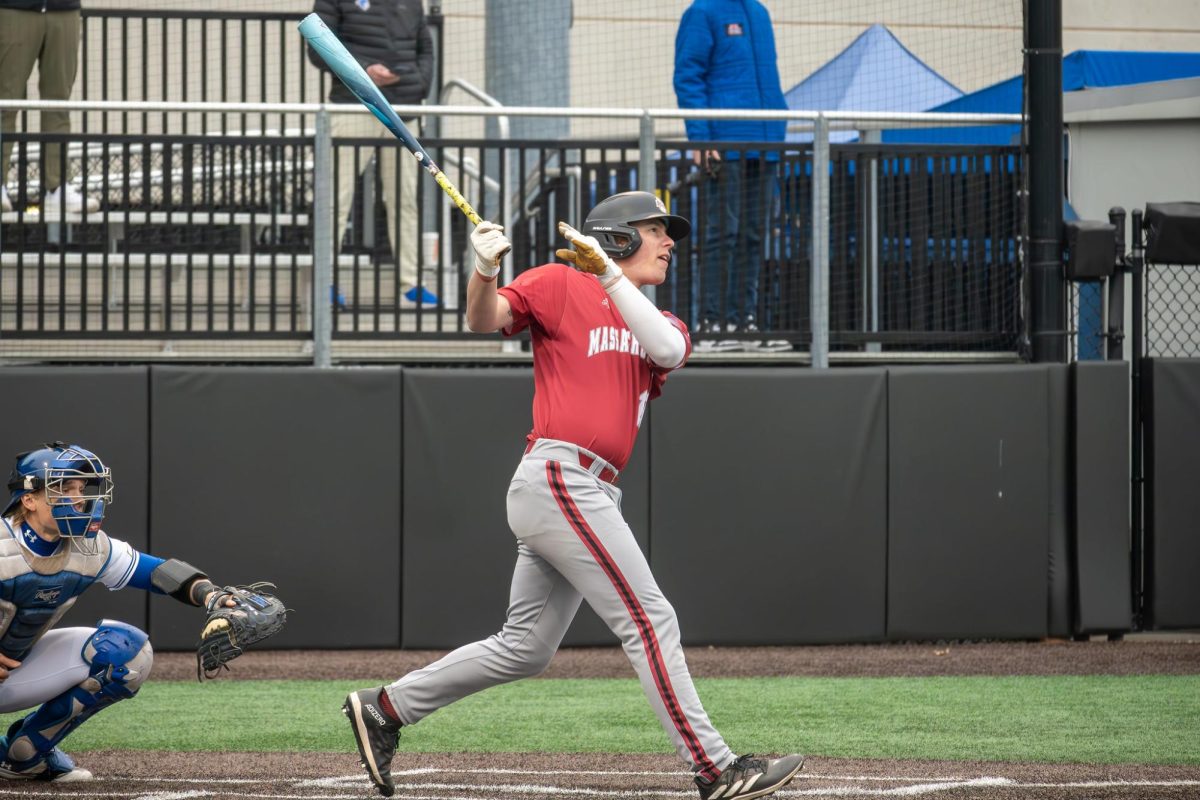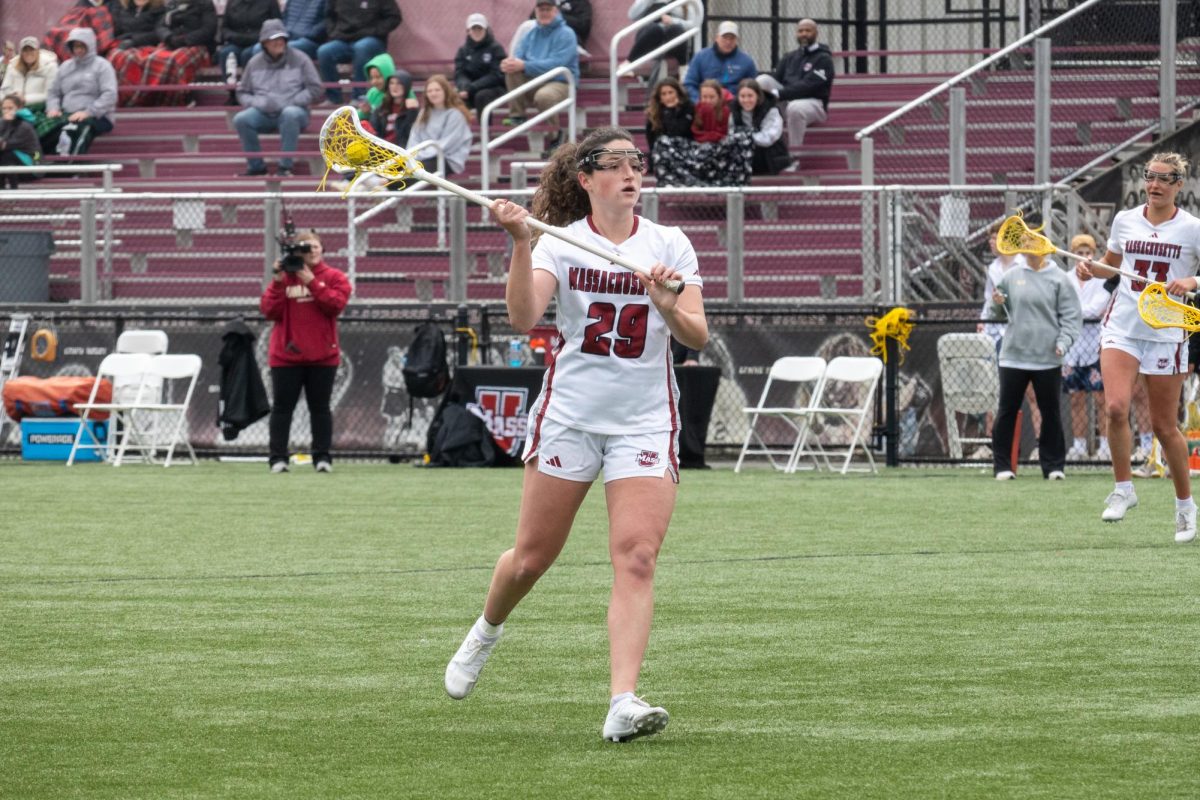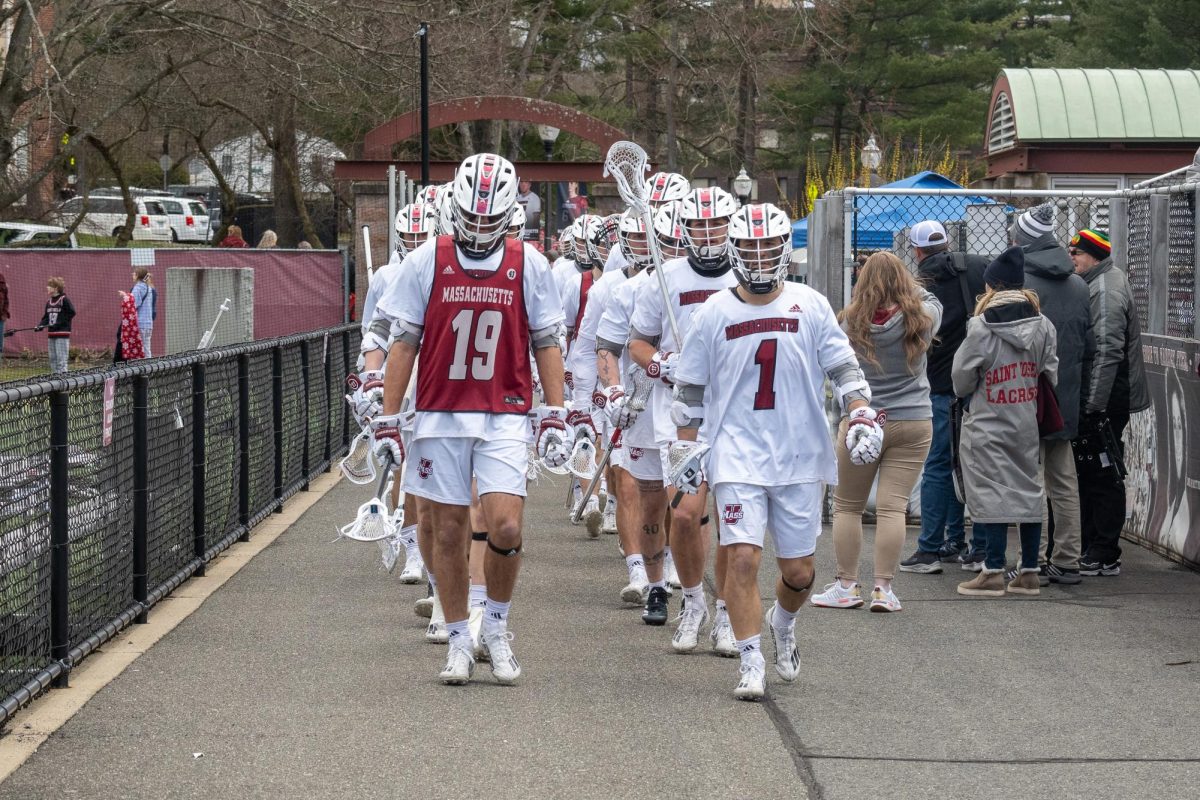
The second annual McCormack Future Industry Leaders Conference was held for sport management majors in the Isenberg School of Management on Saturday.
The event, hosted by the Mark H. McCormack Student Leaders Club, featured case studies, a panel discussion and networking opportunities for students from the University of Massachusetts and other nearby colleges. Each of the activities featured professionals currently working in the sport management industry, many of whom graduated from UMass.
“The conference really gives us an upper hand on students that didn’t have these opportunities,” said Thomas Casey, a freshman studying finance and sport management who attended the event.
Students at the event spent most of the time in case studies for specific areas of focus in the sport management field, such as finance, event and facility management and sports sales. The case studies each had students prepare for a specific situation within those particular fields.
Luke Bonner, a sports and entertainment marketing manager at the agency GYK Antler, hosted the event and facility management case study, in which groups of students needed to prepare the UMass Mullins Center to host the first round of the NCAA Men’s Hockey tournament.
“There’s a lot of moving parts,” said Bonner, a UMass graduate and former professional basketball player. “They’re trying to think through all of the unforeseen potential issues. We’ll see what they find.”
Students working on the case study took into account issues such as hotel accommodations, event security and event sponsorship in groups of three students.
Christos Schwarz, a sophomore sport management major who goes to the University of Connecticut, attended the conference last year as well. Schwarz said that he thought all of the workshops were insightful and that the McCormack Student Leaders Club had worked out some of the scheduling issues from the previous year.
“Myself and other students are working on putting an event like this together at UConn,” said Schwarz.
Seventy-eight people had registered to attend the conference by the time it opened at 8 a.m. on Saturday.
Some students at the event were surprised that more people did not attend.
“I thought there would be more people here,” said Eli Kaplan, a sophomore studying sport management at UMass. “They probably could have done a better job promoting the event.”
Despite this, Kaplan added that having less people attend made the learning experience more conducive to those who did.
The conference concluded with a panel discussion featuring four professionals working in the industry.
Corporate Partnerships Manager of the Harlem Globetrotters David Braun, one of the panelists, said that the industry of sport management is “all about marketing,” and that college students looking to enter the industry should attend as many conferences as they can.
“The sports industry in this world is one of the most competitive industries,” Braun said.
Panelists also gave audience members advice on how to perform most effectively in interviews, such as asking questions at the end of the interview to show prior research into the company.
Eddie Ross, a panelist who works as the director of group sales for the New England Revolution, told the members of the audience to not act too ambitiously in entry level positions.
“What you need to do is work hard and stick to the plan that’s given,” said Ross.
Alex Magid, who works for a division of Horizon Media called Scout Sports and Entertainment which focuses on sports marketing, told those in attendance that it was important to remember why they entered the field of sport management and to not become overstressed by the long work hours of the industry.
“We’re getting into this industry because we like sports and we have long term goals,” said Magid. “We’re not saving lives.”
Stuart Foster can be reached at [email protected] or followed on Twitter @Stuart_C_Foster.


















